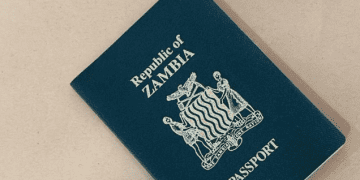Melo Media, Thursday, 16th November, 2023
The Kwacha, the currency of Zambia, has been facing significant challenges in recent years, with its value depreciating against major currencies. One of the factors contributing to this decline is the delay in debt restructuring. In this article, we will explore the impact of this delay on the performance of the Kwacha.
To understand the impact of debt restructuring on the Kwacha, it is important to have a brief understanding of the economic situation in Zambia. The country has been facing a high debt burden, with a significant portion of its revenue going towards debt servicing. This has put pressure on the government’s ability to invest in infrastructure and other development projects.
Debt restructuring refers to the process of renegotiating the terms of a country’s debt to make it more manageable. In the case of Zambia, the government has been in talks with its creditors to restructure its debt, but the process has been delayed. This delay has created uncertainty in the market and has had a negative impact on the Kwacha.
The delay in debt restructuring has led to a depreciation of the Kwacha against major currencies. Investors and foreign exchange traders have become cautious about the economic stability of Zambia, leading to a decrease in demand for the Kwacha. This decrease in demand has resulted in a decline in the value of the currency.
The depreciation of the Kwacha has also contributed to inflationary pressure in Zambia. As the value of the currency decreases, the cost of imported goods and raw materials increases. This, in turn, leads to higher prices for consumers, reducing their purchasing power and impacting the overall economy.
The delay in debt restructuring has also affected investment and business confidence in Zambia. Uncertainty about the country’s economic stability has made investors hesitant to commit to long-term projects or expand their operations. This lack of investment has further contributed to the decline in the value of the Kwacha.
To mitigate the impact of the delay in debt restructuring on the Kwacha, the Zambian government needs to prioritize resolving its debt issues. This may involve engaging in constructive dialogue with creditors, implementing fiscal reforms, and attracting foreign investment. By addressing these issues, the government can restore confidence in the economy and stabilize the value of the Kwacha.
The delay in debt restructuring has had a significant impact on the performance of the Kwacha. The depreciation of the currency, inflationary pressure, and decreased investment and business confidence are all consequences of this delay. It is crucial for the Zambian government to take swift action to resolve its debt issues and restore stability to the economy, which will ultimately benefit the performance of the Kwacha.

















